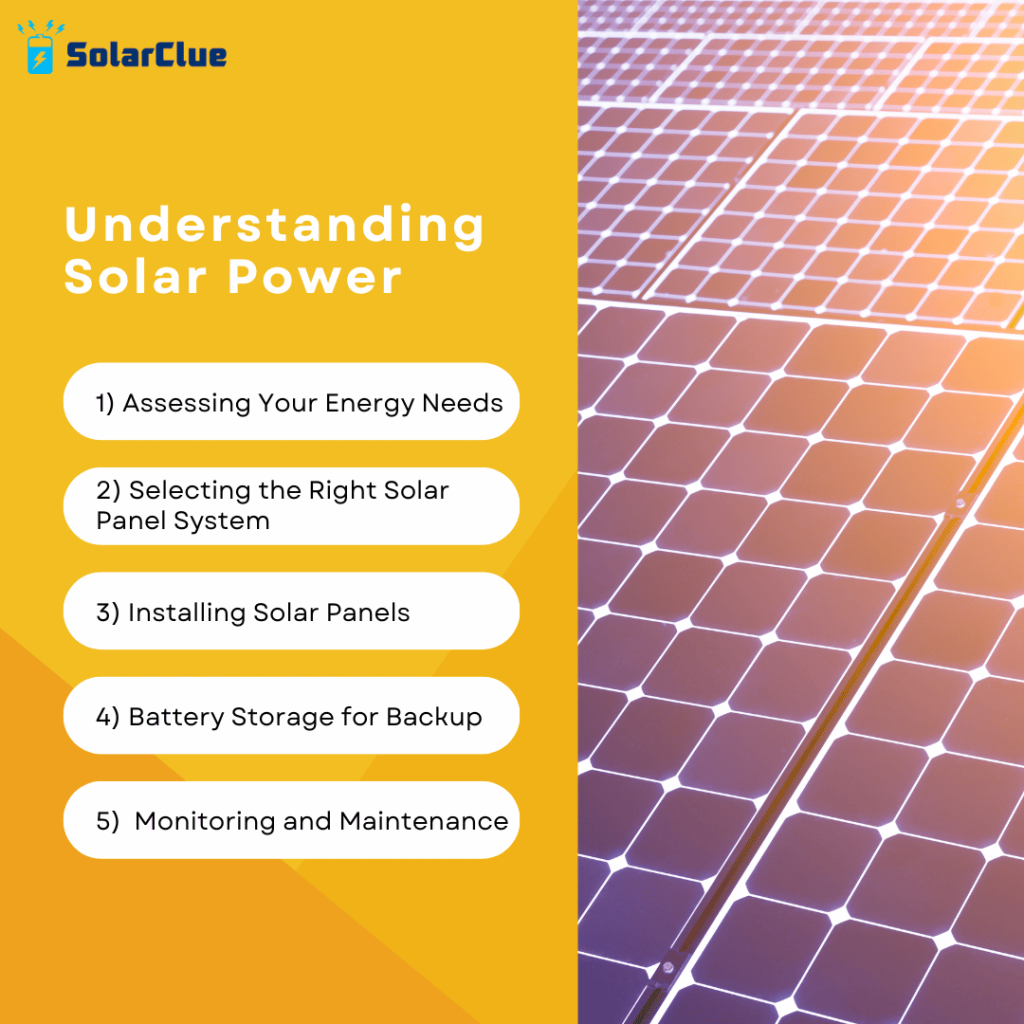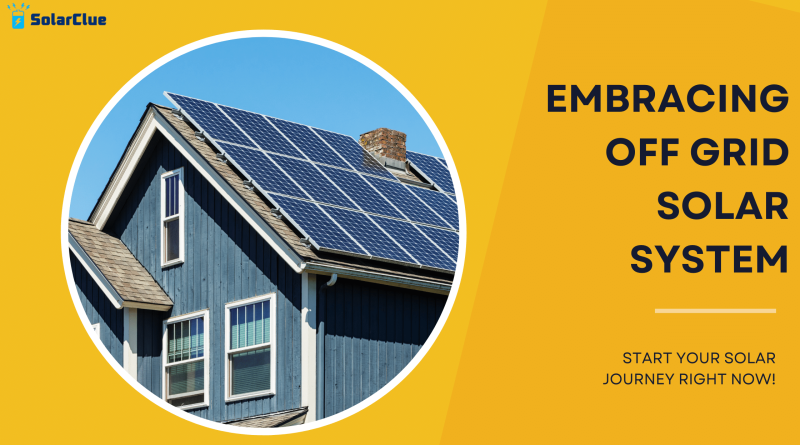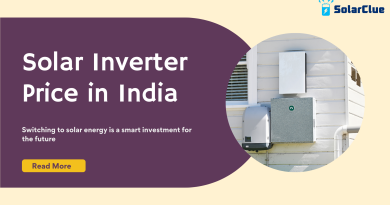Embracing Independence with Off Grid Solar System
In today’s fast-paced and technologically-driven world, a growing number of individuals are actively exploring alternative ways of living that prioritize sustainability and environmental friendliness. Additionally, going off the grid with solar panels is a popular choice for those who want to reduce their reliance on traditional energy sources and become more self-sufficient. In this blog post, we will explore how you can go off grid solar system and enjoy the benefits of harnessing renewable energy.
Table of Contents
Understanding Solar Power
Solar power is a clean and renewable energy source that is derived from the sun’s rays. It involves converting sunlight into electricity through the use of solar panels. These panels are made up of photovoltaic (PV) cells, which absorb the sunlight and convert it into direct current (DC) electricity. This DC electricity is then converted into alternating current (AC) electricity through an inverter, making it usable for household appliances and other electrical devices. The excess energy produced by solar panels can be stored in batteries for use during nighttime or cloudy days.

1. Assessing Your Energy Needs
Before you can start your off-grid solar system journey, it is essential to assess your energy requirements. Begin by evaluating your current energy usage, including the appliances and devices you use regularly.
Determine your average daily energy consumption in kilowatt-hours (kWh). This crucial step will help you ascertain the size and capacity of the solar panel system you will need. Consequently, this assessment will empower you to make an informed decision about the number of solar panels and batteries required to meet your energy needs efficiently.
2. Selecting the Right Solar Panel System
Once you have evaluated your energy needs, the next step is to select the right solar panel system for your off-grid living. The primary factors to consider are the size and capacity of the solar panels, along with the number of batteries required. Consult with a solar panel expert or specialist who can guide you on the best system for your needs. They will also help you determine the ideal placement of solar panels to maximize sunlight exposure.
3. Installing Solar Panels
The installation of solar panels is a crucial step in going off the grid. Additionally, hiring a professional is recommended for this task, as they possess the necessary knowledge and experience to install the solar panels safely and efficiently. Securely mount the panels on a sturdy structure, such as a roof or ground, to receive maximum sunlight exposure. After installation, ensure proper connection of the panels to an inverter, charge controller, and battery bank to guarantee seamless energy conversion and storage.
4. Battery Storage for Backup
To ensure uninterrupted power supply when the sun is not shining or during power outages, it is essential to invest in a reliable battery storage system. Batteries allow you to store excess energy generated during the day so that you can use it at night or during cloudy weather. Opt for high-quality deep-cycle batteries specifically designed for solar storage, as they can withstand regular charge and discharge cycles. Depending on your energy needs, determine the number of batteries required to support your off-grid lifestyle effectively.
5. Monitoring and Maintenance
Firstly, going off the grid with solar panels requires consistent monitoring and maintenance to ensure optimal performance and longevity. In addition, regularly inspect the solar panels for any dirt, debris, or shading that may reduce their efficiency. To address this, clean the panels with water and a soft brush to remove any accumulated dirt. Additionally, monitor the battery levels and ensure they are properly charged and maintained. It is recommended to consult the manufacturer’s guidelines or seek professional assistance for any maintenance or repair requirements.
The Benefits of Going Off the Grid
Going off the grid with solar panels offers several advantages, both for individuals and the environment. Firstly, it provides energy independence, allowing you to generate your own electricity and reduce reliance on traditional power sources, which often contribute to pollution and greenhouse gas emissions. Secondly, going off the grid can contribute to substantial cost savings in the long run, as solar power is a renewable and free resource. Finally, it promotes a more sustainable lifestyle, reducing your carbon footprint and preserving the planet for future generations.
Conclusion
Moreover, transitioning to an off-grid lifestyle with solar panels is a rewarding journey that allows you to become more self-sufficient and environmentally conscious. Furthermore, by understanding solar power, assessing your energy needs, selecting the right solar panel system, and installing it correctly, you can enjoy the numerous benefits of going off the grid. Additionally, remember to monitor and maintain your solar panels and batteries regularly to ensure optimal performance. Embrace this eco-friendly alternative and empower yourself with clean, renewable energy that is both cost-effective and sustainable. For expert guidance and top-notch solar solutions, take the next step with Solarclue®. Contact us today to embark on your path to a greener, more sustainable future.
Frequently Asked Questions
Solar panels harness sunlight to generate electricity, enabling off-grid dwellers to power their homes independently and sustainably.
Common components for a solar power system include solar panels, batteries for energy storage, inverters for converting DC to AC power, and charge controllers to regulate the charging of batteries.
Off-grid living is adaptable to various climates; however, careful planning is required to ensure adequate energy production and water supply in different environmental conditions.
Methods for securing a water source off-grid include rainwater harvesting, well drilling, and efficient water conservation practices.
Methods for securing a water source off-grid include rainwater harvesting, well drilling, and efficient water conservation practices.
Regulations vary by location, and it’s crucial to research and comply with local laws regarding building codes, waste disposal, and water usage.
Challenges may include initial setup costs, maintenance of renewable energy systems, and adapting to a more self-reliant lifestyle.
Yes, off-grid homes can incorporate modern amenities such as internet connectivity, appliances, and entertainment systems through energy-efficient and off-grid compatible technologies.
Off-grid living often involves composting, recycling, and adopting responsible waste management practices to minimize environmental impact.
Off-grid living requires a certain level of commitment, adaptability, and a willingness to embrace a simpler lifestyle. While it may not be suitable for everyone, it can be rewarding for those seeking independence and sustainability.


